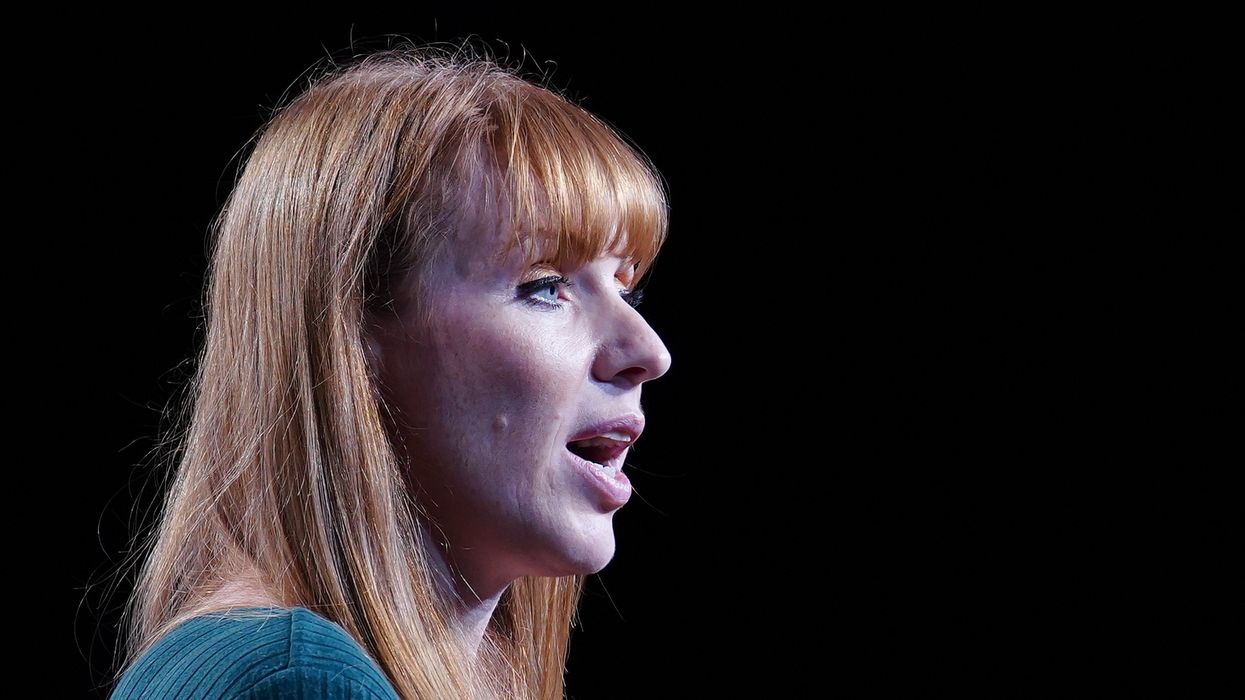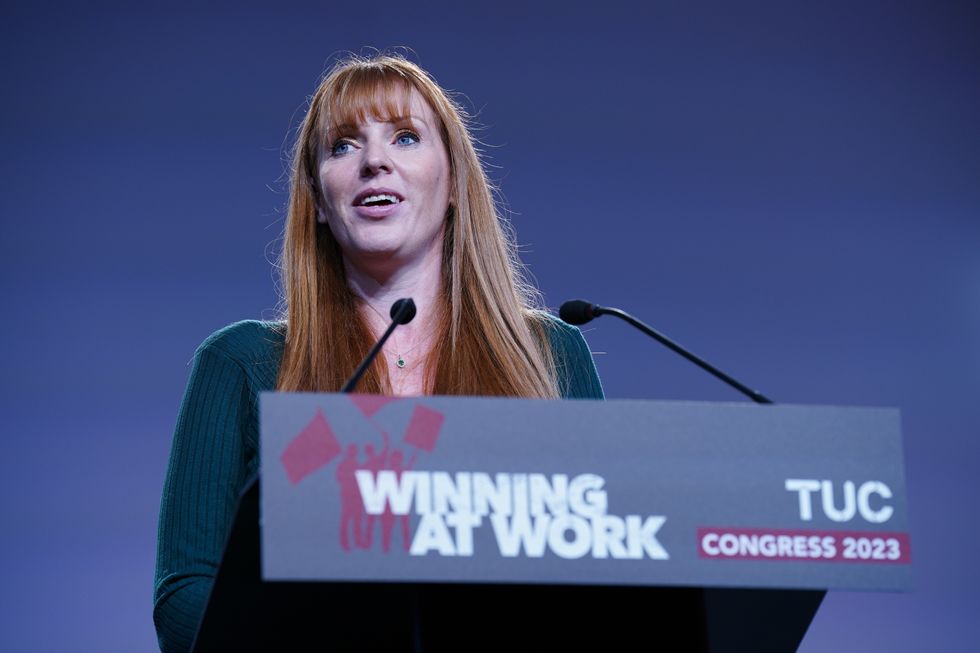
Angela Rayner addressed the Trade Union Congress Congress today
PA
'If Keir Starmer is styling himself as a slightly less cool Tony Blair, Angela Rayner is his slightly less punching John Prescott'
Don't Miss
Most Read
Trending on GB News
Angela Rayner went down a storm at the Trade Union Congress Congress. (Yes, the annual four day gathering of the forty eight trade unions that make up the Trade Union Congress is really called the Trade Union Congress Congress.)
But behind the cheers and standing ovations, marked a murky deal. A plan to accede to union demands for more and more power, in return for the movement’s support come election time.
The relationship between the Labour Party and some trade unions had been on the rocks since Keir Starmer began to U-Turn on many of the pledges that helped him glide to victory in the 2020 Labour leadership election.
With his ditching of promises to abolish tuition fees, nationalise many industries, and defend free movement with the EU, as well as booting out Jeremy Corbyn – a man he had called his “friend”, the Union movement had started to attack Sir Keir as a “90s tribute act”.

Angela Rayner was the woman to deliver the bargain; a shopping list of Union policy demands granted in return for political support
PAWell, if Keir Starmer is styling himself as a slightly less cool Tony Blair, Angela Rayner is his slightly less punching John Prescott: the link between a Labour Leadership desperate to appear more modern and corporate back to the trade unions. And the woman to deliver a crucial election quid pro quo.
“I may have been born in Stockport” Rayner told the crowd, “but I was raised in the trade union movement.”
Angela Rayner was the woman to deliver the bargain; a shopping list of Union policy demands granted in return for political support. As the Labour Deputy Leader, and now Shadow Deputy Prime Minister told the crowd: “We have to come together, stand together, and campaign side-by-side. And we need your help and backing to get the word out about our New Deal for Working People.”
A clear bargain. So what is in the litany of concessions to the Trade Union barons? Crucially commitments to repeal not just Rishi Sunak’s Minimum Service Level legislation, but David Cameron’s Trade Union Act too.
The Government argues that Sunak’s proposed legislation to guarantee a minimum level of safety when it came to NHS strikes for example would bring the UK into line with many European countries. The Labour Party and the Unions have fiercely opposed this proposed legislation since its announcement. Rayner repeatedly described the proposals as “a spiteful and bitter attack” on trade unionists.
Elsewhere, David Cameron’s Act changed the law to ensure that strikes could only take place if at least 50% of eligible union members voted in the ballot, and the mandate for such strike action would expire after six months. Repealing this legislation would arguably make strike action far less democratic, and therefore more likely.
His Trade Union Act also prevented automatic wage deductions to pay for union membership unless the worker agreed to it. It gave union members the right to opt out of funding union political activities too. Repealing this act would see a significant shift of power away from union members and towards union bosses.
But isn’t just in repealing legislation that Rayner has promised to expand the power of trade unions in Britain. It’s also through new laws to be brought in within the first 100 days of entering office. Rayner’s New Deal for Working People.
This mammoth shopping list of union policy includes everything from loosening checks and balances on sick pay, promising “the state will take a more strategic and active role in our economy”, a ban on flexible ‘zero hour’ contracts, day one employment rights, and a new statutory right for union representatives to access all workplaces to proselytise and recruit new members.
What’s more, this union boss-backed packaged will be legislated for within the first 100 days of entering office.
It’s clear the trade union barons are happy. Responding to the announcement, the TUC has trumpeted “greater trade union access to workplaces” and said “Implementing the New Deal would be the biggest upgrade in workers’ rights in a generation.”
On the other hand, the Chairman of the Conservative Party Greg Hands has said “The mask has slipped. Despite Keir Starmer’s short-term promises to be pro-business, his Deputy Leader is committing to Labour’s union paymasters that they will have more control over Britain’s economy.”
It remains to be seen if the deal struck today will have any effect on Labour’s commanding poll lead. It will certainly deliver the party more foot soldiers.








